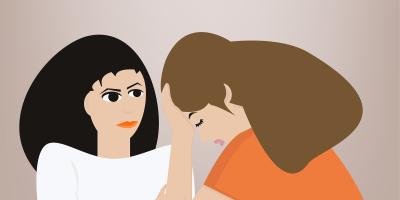Polish patients do not know their rights. Studies show that only 53% of Poles are aware that such rights even exist. This is why the role of patient associations is so important, as they assist in the enforcement of these rights.
There are hundreds of organisations of patients – they provide support in illness, assist in obtaining funds for treatment, in reaching specialists, and provide information on specific diseases. They also provide legal counselling.
Patient rights – an important topic
One of the best-known patient organisations is the Primum Non Nocere Patients Association, established in 1998 and founded by Adam Sandauer. The main objective of the association is to fight for legal changes which would allow the victims of medical malpractice to receive immediate assistance.
The Institute of Patients Rights and Health Education, which was founded under the initiative of father Arkadiusz Nowak, has been promoting patient rights since 2004.
The website of the institute at www.prawapacjenta.eu is intended to serve as a platform for communication and cooperation of patients’ groups, and a place providing credible information on the operations of patient organisations. The website contains an interactive database of such organisations.
Ethics and high operating standards
The institute is also one of the initiators of the introduction of the Code of Ethics of Patients’ Organisations. It also holds courses for the leaders of such organisations.
The code was created by a group of representatives of several organisations from all of Poland.
“The provisions of the Code mainly focus on the operating independence and transparency of the organisations acting for the good of the patients, and establish the responsibilities which should be fulfilled by all of its signatories," Igor Grzesiak of the Institute Board tells the e-zdrowie website.
The responsibilities include placing the articles of association on the website of the organisation, submitting a report on the organisation’s activities and publishing the said report on the website. “These elements seem obvious, but they are frequently omitted by numerous non-governmental organisations," Grzesiak points out.
The institute also holds workshops, which aim to enforce the role of associations in the health care system.
“We have conducted training courses in managing non-governmental organisations, obtaining funds, certification, and patient rights information. During the past two years, the Institute has organised two psychological training sessions, during which the participants had the opportunity to learn about interpersonal communication methods, ways to provide support in difficult situations, and other things," adds Grzesiak.
Patient organisation or Patients’ Rights Ombudsman?
Although the organisations are becoming more and more active, patients seeking help should primarily approach the Patients’ Rights Ombudsman. Grzesiak reminds that the objective of this office is to provide counselling and intervention on behalf of the patients.
“We are trying to avoid collisions with the competences of the institutions established to defend patient rights, therefore the foundation will provide the patients with general information on their rights and tell them who to approach," says Grzesiak.
He notes that, although many years have passed from the appointment of the Ombudsman, the information level on the rights is still low.
“According to our report, which was developed by MillwardBrown, only 53 percent of the subjects are even aware of the existence of patient rights, and awareness of individual rights is only 11 percent," stresses Grzesiak.









Comments (0)